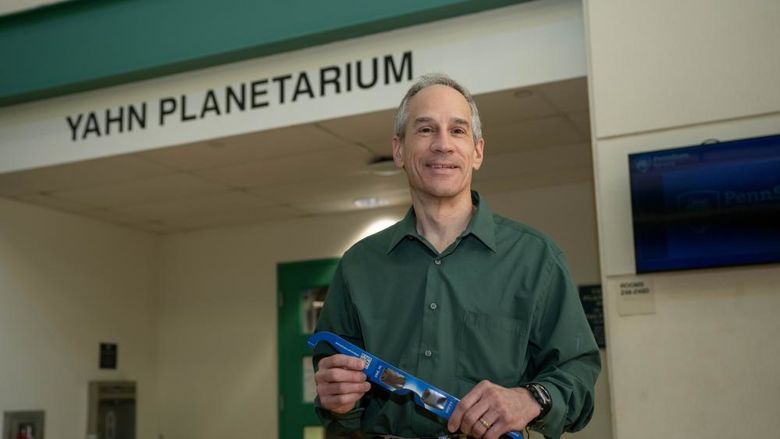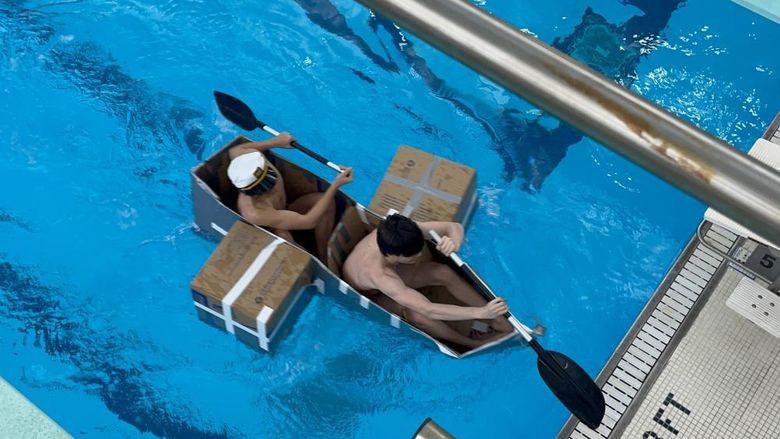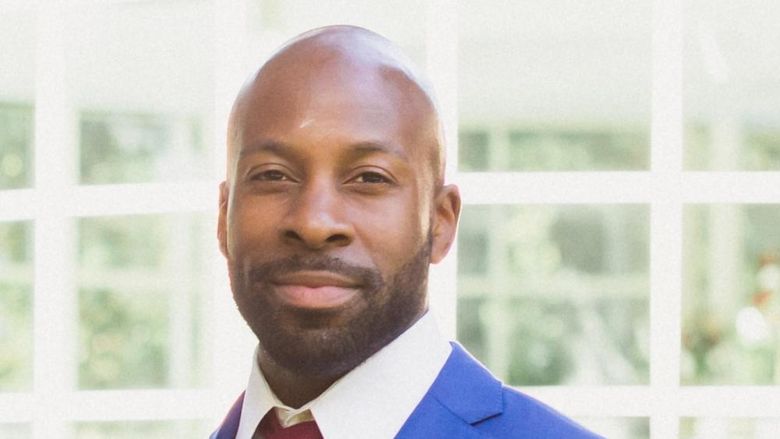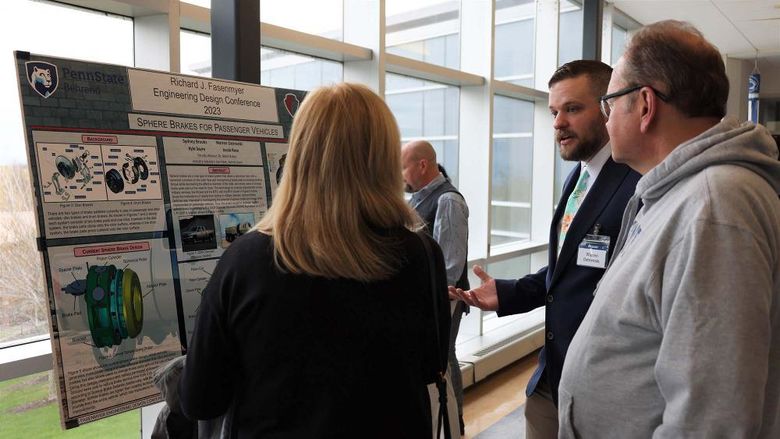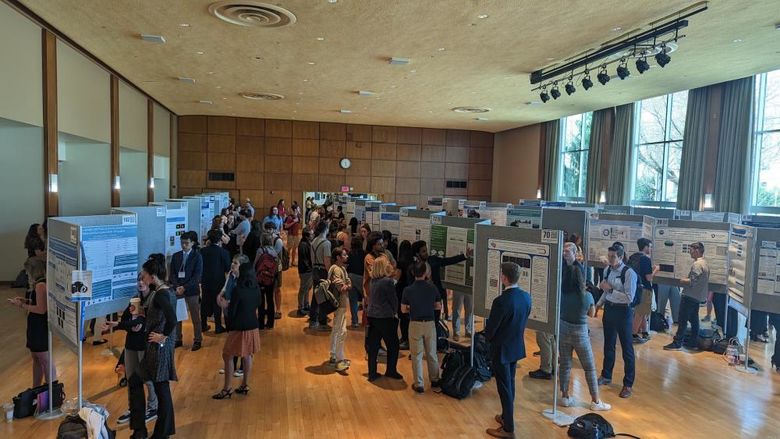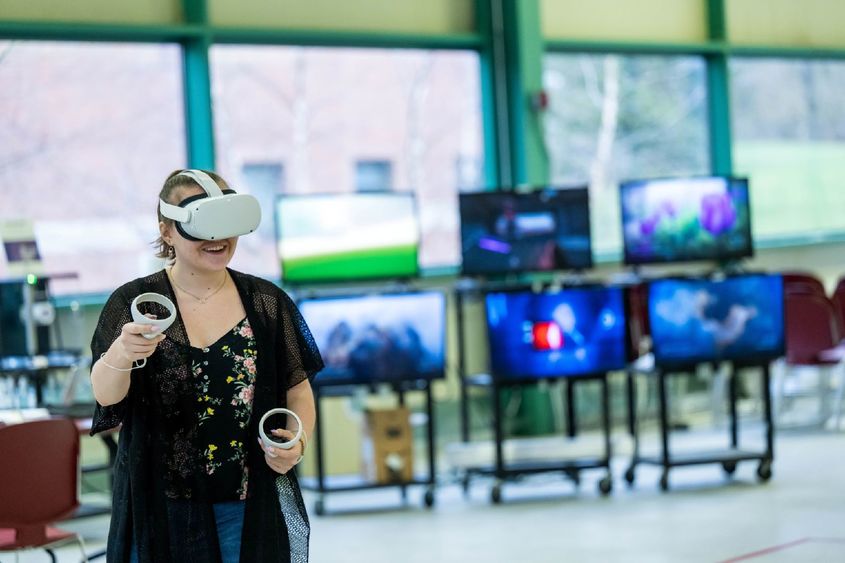
Lauren Cass, the immersive administrator at Penn State Behrend's Virtual/Augmented Reality Lab, will attempt to set a Guinness World Record by watching 55 hours of uninterrupted content in VR.
ERIE, Pa. — Two researchers at the Virtual/Augmented Reality Lab at Penn State Behrend will attempt to set a Guinness World Record by watching 55 hours of uninterrupted content in VR headsets.
The attempt, scheduled for April 5-7, will coincide with Behrend’s spring Open House and will showcase the VAR Lab’s innovative use of technology to create immersive workplace trainings and interactive park and museum displays.
“It’s an out-of-the-box way for us to raise awareness for the lab and maybe make some new industry and community connections,” said Chris Shelton, the lab’s director and an associate professor of clinical psychology. “So much of what we do here overlaps with and can augment the way we live our lives.”
Shelton will partner with Lauren Cass, the lab’s immersive administrator, for a 55-hour film-and-TV marathon. They have queued a library of nearly 50 films and TV episodes, favoring comedies: In March, during a 24-hour trial run, they binged horror movies in VR. The quiet scenes that preceded the jump scares — normally a source of hair-raising suspense — were too slow to keep them engaged, Cass said.
From April 5-7, Shelton and Cass will remain in VR headsets, watching content. A livestream of their video feed will be broadcast online and in the lab, in the Merwin Building at Behrend’s Knowledge Park, where a support team will monitor the pair.
Throughout the attempt, volunteer observers will collect data, including images from flexible endoscope cameras, which will be snaked into each Meta Quest Pro headset to ensure that Shelton and Cass are awake and engaged. That data will be bundled with the livestream feed and other video footage in order to verify the world record attempt.
Shelton and Cass will earn a 5-minute break for every hour they spend in VR, according to Guinness. They said they plan to bank that respite time, building a few brief naps into the weekend.
They cannot spend any of the time playing VR games: That’s a different record, set in 2023 by two gamers in the Netherlands who played Minecraft for 50 consecutive hours.
Shelton and Cass will be able to communicate with guests in the lab as long as they do not remove the headsets.
“Honestly, we’re going to need that,” Shelton said. “If we can laugh and share that moment with someone, like you do when you watch a movie with your family on the couch, that’s going to help us stay awake.”
Shelton said he hopes the world record attempt generates interest in the lab. He also hopes to show off the lab’s tech gear, which includes Skydio drones and Artec structured light scanners. Researchers in the lab have used that equipment and VR/AR simulations to recreate fossils, militaria and even a baked-clay cuneiform tablet, like those used by the Sumerians to preserve astronomical texts.
The lab has developed interactive museum exhibits for the Hagan History Center in Erie and is currently working with the Carnegie Science Center in Pittsburgh. A new project, with Snap-tite Hose Co., an Erie-based manufacturer of fire hoses, will create immersive training modules for new employees.
“Big companies already are utilizing this technology for training and other purposes,” Shelton said. “We want people to be comfortable with it, especially our students, who will be interacting with virtual and augmented reality as it continues to develop and becomes a regular part of our lives.”
Robb Frederick
Director of Strategic Communications, Penn State Behrend

